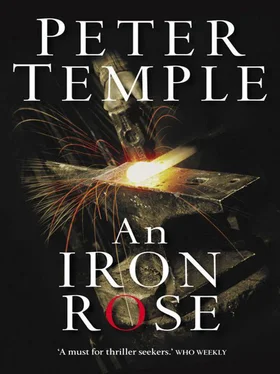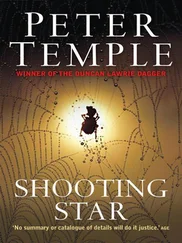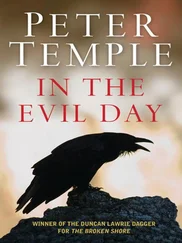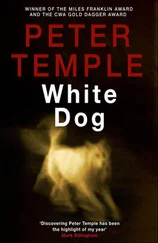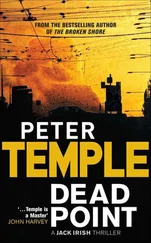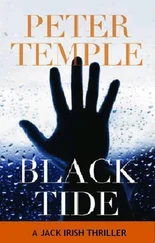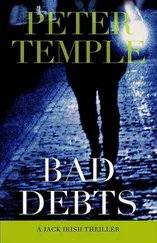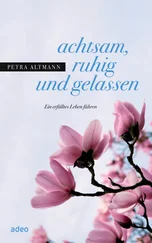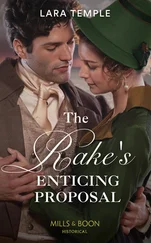Peter Temple - An Iron Rose
Здесь есть возможность читать онлайн «Peter Temple - An Iron Rose» весь текст электронной книги совершенно бесплатно (целиком полную версию без сокращений). В некоторых случаях можно слушать аудио, скачать через торрент в формате fb2 и присутствует краткое содержание. Жанр: Триллер, на английском языке. Описание произведения, (предисловие) а так же отзывы посетителей доступны на портале библиотеки ЛибКат.
- Название:An Iron Rose
- Автор:
- Жанр:
- Год:неизвестен
- ISBN:нет данных
- Рейтинг книги:3 / 5. Голосов: 1
-
Избранное:Добавить в избранное
- Отзывы:
-
Ваша оценка:
- 60
- 1
- 2
- 3
- 4
- 5
An Iron Rose: краткое содержание, описание и аннотация
Предлагаем к чтению аннотацию, описание, краткое содержание или предисловие (зависит от того, что написал сам автор книги «An Iron Rose»). Если вы не нашли необходимую информацию о книге — напишите в комментариях, мы постараемся отыскать её.
An Iron Rose — читать онлайн бесплатно полную книгу (весь текст) целиком
Ниже представлен текст книги, разбитый по страницам. Система сохранения места последней прочитанной страницы, позволяет с удобством читать онлайн бесплатно книгу «An Iron Rose», без необходимости каждый раз заново искать на чём Вы остановились. Поставьте закладку, и сможете в любой момент перейти на страницу, на которой закончили чтение.
Интервал:
Закладка:
‘How d’you know that?’
‘No other way, mate. He was hangin there right up against the car, bout three feet off the ground. Head looked like it was gonna pop.’
‘Did you find him?’
‘Na. Me mate Boris. But I was right behind.’
I took a short walk, looking up the beam, looking at the floor, looking at the campfire zone. I came back and stopped a short distance from the man. The skin under his eyes was flaking.
‘The bloke’s mum asked me to take a look,’ I said.
He nodded. ‘Be a bit upsettin, rich bloke an all.’
‘What’s your name?’
‘Robbo, they call me. Robert’s me proper name.’
‘Robbo, how do you know he was a rich bloke?’
He thought for a moment. ‘Had a tie on, y’know. Funny that.’
‘Anything else catch your eye?’
‘Na. Tell ya the truth, I’d had a few. Went down the milk bar to call the cops.’
‘You and Boris know this place well?’
He looked around as if seeing it for the first time. ‘I reckon,’ he said. ‘Make a bit of a fire, have a drink.’
‘You do that often? Every night?’
‘When it’s warm we just stay in the park.’
‘Must have been pretty cold that night. How come you weren’t here?’
‘When?’
‘The night the bloke hanged himself.’
‘Dunno. Can’t remember.’
‘So you came here the next day. In the morning?’
Robbo fingered the skin under his left eye. ‘I reckon,’ he said. ‘Boris’d know. He’s a youngster.’
‘I might like to talk to Boris,’ I said. ‘Is he going to be around some time?’
Robbo looked off into the middle distance. ‘Well,’ he said, ‘ya see him and ya don’t.’
I took out my wallet and found a ten-dollar note. ‘Where do you buy your grog?’ I said.
‘Down the pub. Geelong Road. Just near the park.’ He waved vaguely.
‘They know your names there?’
He thought about it. After a while, he said, ‘Reckon.’
I gave him the ten dollars. ‘I’ll leave a message for you at the bottle shop. Be sure you tell Boris. I’ll give you another twenty each when I see him.’
He gave me a long look, nodded and shuffled off.
I carried on with my look around. The wood for the fire came from cupboards and counters in the office building. Only bits of the carcasses remained. Ripping up of the floorboards had started. To the left of the office building was a laneway ending in a gate, its frame distorted and with large pieces of mesh cut out.
There wasn’t anything else to look at, so I left. As I was driving away, I looked in the rear-view mirror and saw a boy of about twelve, one foot on a skateboard, watching me go. I hoped he didn’t have to do all his growing up in Varley Street.
The Streeton pub. Solid redbrick building, twenty metres long, small lounge on the left, bar on the right, standing at a skew crossroads on a windy hill. I made a hole in a steamed-up pane of a bar window and watched a Volvo pull up outside: Irene Barbie, short red hair lighting up the sombre day like the flare of a match. What daylight was left was retreating across the endless dark-soiled potato fields. She was wearing a tweed jacket and jeans, didn’t seem to notice the thin rain falling, took a small black suitcase from the front passenger seat and locked it in the boot. Vet’s bag, full of tempting animal drugs. It wasn’t an overly cautious thing to do: there were men drinking at the bar who looked capable of snorting Omo if it promised a reward.
I drained my glass and went through to the empty lounge to open the door for her. She was medium height, slim, nice lines on her face. It was hard to guess her age-somewhere in the forties. There was no grey in the springy red hair.
‘Mac Faraday,’ I said. ‘Irene?’
We shook hands.
‘I’ll take a drink,’ she said. ‘Double scotch. Just had a horse die on me. Perfectly healthy yesterday, now utterly lifeless. Massive bloody things go out like butterflies. Thank God there’s a fire.’
When I came back, she had her boots off and her feet, in red Explorer socks, warming in front of the grate.
‘Thanks,’ she said. ‘Disgusting to take off your shoes in public, but I feel like I’ve got frostbite.’
‘I’d join you,’ I said, ‘but I’m not sure my socks match.’
‘I changed mine at lunchtime,’ she said. ‘I had a gumboot full of liquid cow shit.’ She moved both sets of toes, waving at the fire.
We drank. I’d spoken to her on the phone. Allie knew her from working around the stables and that got me over the suspicion barrier.
‘She’s a real asset around here, Allie,’ she said. ‘District’s full of self-taught farriers.’ She had another large sip, put the glass on the floor beside the chair. ‘Well,’ she said, ‘the pain is receding. I’ll tell you straight away, I had very little to do with Ian in the last two years.’
‘Something involving Ian puzzles me,’ I said. ‘A friend of mine, man called Ned Lowey, not a patient of Ian’s, went to see him in Footscray. Now they’re both dead. Both hanged. Ned, then Ian. Two days in between them.’
She was silent. Then she said, ‘Well, that’s hard to explain.’
‘I’m not convinced Ned killed himself,’ I said. ‘Can I ask you whether you could see Ian killing himself?’
She considered the question, looking at me steadily, grey eyes calm under straight eyebrows. ‘Yes,’ she said. ‘Yes, I could.’
‘Why’s that?’
Sip of whisky, audible expulsion of breath, wry face. ‘It’s not easy to talk about this.’ She looked into my eyes. ‘Are you married?’
‘Not any more. Does that disqualify me?’
‘People who haven’t been married have trouble understanding how things can change over the years. I was married to Ian for nearly twenty years and I knew less about him at the end than I did at the beginning. Yes, he could kill himself.’
Now you wait.
‘If you ask around about Ian, you won’t hear anything but praise. Everywhere I went, people used to tell me how wonderful he was. It’s worse now that he’s dead. People stop me in the street, tell me how they could ring him in the middle of the night, never get a referral to a duty doctor, never get an answering machine. How he’d talk to them for twenty minutes, calm them down, cheer them up, make them feel better, traipse out at two am to comfort some child, reassure the parents, hold some old lady’s hand. And it’s all true. He did those things.’
‘Sounds like the old-fashioned doctor everyone misses,’ I said.
She smiled, without humour. ‘Oh, he was. Like his partner, Geoff Crewe, seventy-nine not out. And Ian wasn’t just a good doctor. He was wonderful company. Mimic anyone, not cruelly, sharp wit. He noticed things, told funny stories, good listener.’
She looked around the room, looked into her glass.
‘But,’ I said.
‘Yes. The But. That was Ian’s public face. Well, it was his private face too. In the beginning. There was an unhappiness in Ian and it got worse over the years. After about five years, it was like living with an actor who played the part of a normal human being in the outside world and then became this morose, depressed person at home. He’d come home full of jokes, talkative, and an hour or two later he’d be slumped in a chair, staring at the ceiling. Or in his study, head on his arms at the desk, or pacing around. He cried out in his sleep at night. Almost every night. I’d wake up and hear him walking around the house in the small hours. He used to love skiing, one thing that was constant. Went to Europe or Canada every year for three weeks. Then he just dropped it. Stopped. If he’d been drinking, he’d try to hurt himself, hitting walls, doors. He put his fist through a mirror once. Forty stitches. You couldn’t reason with him. All you could do was wait until the mood swung. It happened a few times a year when we were first married. I was in love. I sort of liked it. It made him a romantic figure. In the end, we didn’t speak ten words a day to each other. I stuck it out until our daughter left home and then I left him.’
Читать дальшеИнтервал:
Закладка:
Похожие книги на «An Iron Rose»
Представляем Вашему вниманию похожие книги на «An Iron Rose» списком для выбора. Мы отобрали схожую по названию и смыслу литературу в надежде предоставить читателям больше вариантов отыскать новые, интересные, ещё непрочитанные произведения.
Обсуждение, отзывы о книге «An Iron Rose» и просто собственные мнения читателей. Оставьте ваши комментарии, напишите, что Вы думаете о произведении, его смысле или главных героях. Укажите что конкретно понравилось, а что нет, и почему Вы так считаете.
